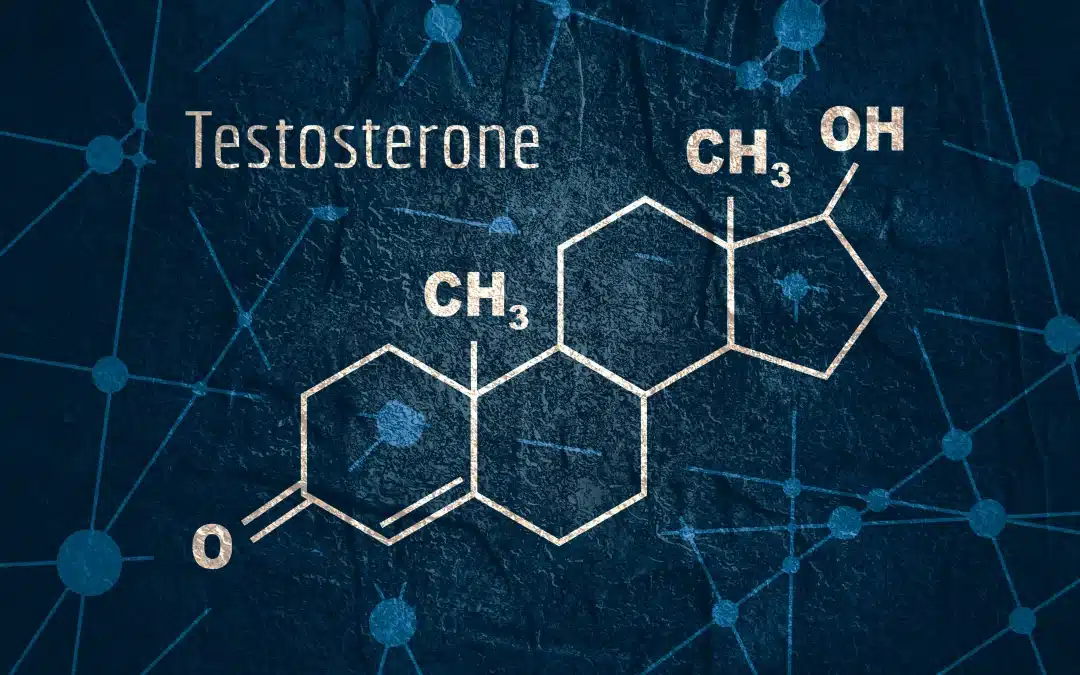The human gut is an intricate ecosystem, teeming with a vast array of microorganisms collectively known as the gut microbiome. This diverse community of bacteria, viruses, and fungi plays a pivotal role in our overall health and well-being. While many of these microbes are beneficial, some can be harmful, leading to various digestive issues and even systemic conditions. In our quest for optimal gut health, we must maintain a delicate balance within this microbial universe. Maintaining a healthy gut microbiome is essential for overall health and well-being. However, various factors, such as diet, stress, and antibiotic use, can disrupt this delicate balance, leading to an overgrowth of harmful bacteria and the development of gut-related disorders. One promising approach to resolving this involves harnessing the power of antibodies, the body’s natural defense mechanisms, to selectively target and neutralize harmful gut bacteria.
Understanding the Role of Antibodies in Targeting Bad Gut Bacteria
Antibodies, also known as immunoglobulins, are proteins produced by the immune system to recognize and neutralize foreign substances, including harmful bacteria. These remarkable molecules act as sentinels, patrolling our bodies and binding to specific targets, such as bacterial antigens, marking them for destruction by other components of the immune system.
In the context of gut health, antibodies play a crucial role in maintaining a healthy balance within the gut microbiome. By selectively targeting and neutralizing harmful bacteria, antibodies help to prevent these microorganisms from proliferating and causing potential harm [1].
Antibodies and their Potential in Microbiome Therapeutics
The selective targeting capabilities of antibodies make them attractive candidates for microbiome therapeutics. By developing antibodies that specifically recognize and neutralize harmful gut bacteria, researchers aim to restore the balance within the gut microbiome, alleviating various gut-related conditions [1,2].
One of the key advantages of using antibodies in microbiome therapeutics is their high specificity [1,3]. Unlike traditional antibiotics, which often indiscriminately kill both beneficial and harmful bacteria, antibodies can be designed to target specific harmful strains while leaving the beneficial microbes unharmed. Furthermore, antibodies have the potential to modulate the immune system’s response to gut bacteria, reducing excessive inflammation and promoting a more balanced immune response within the gut.
Exploring the Different types of Antibodies that Target Bad Gut Bacteria
Researchers are exploring various types of antibodies for their potential in targeting harmful gut bacteria, including:
- Monoclonal antibodies: These highly specific antibodies are produced by identical immune cells and target a single antigen on harmful gut bacteria [3].
- Polyclonal antibodies: Derived from multiple immune cells, polyclonal antibodies recognize multiple epitopes or antigenic sites on harmful gut bacteria, providing a broader range of coverage [1].
- Antibody fragments: Smaller fragments of antibodies, such as Fab (fragment antigen-binding) and scFv (single-chain variable fragment), offer potential advantages in terms of stability, penetration, and cost-effectiveness.
- Engineered antibodies: Through techniques like antibody engineering, researchers can develop antibodies with enhanced binding affinity, stability, and specificity for targeting harmful gut bacteria.
Each type of antibody offers unique advantages and potential applications in the field of microbiome therapeutics, and ongoing research aims to optimize their design and delivery for maximum efficacy.
The Benefits of using Antibodies in Gut Health
The use of antibodies in targeting harmful gut bacteria offers several potential benefits, including:
- Precision targeting: Antibodies can selectively target and neutralize specific harmful gut bacteria while leaving the beneficial microbes intact, minimizing disruption to the overall gut microbiome [3].
- Reduced risk of antibiotic resistance: Unlike traditional antibiotics, which can contribute to the development of antibiotic resistance, antibodies employ a different mechanism of action, potentially reducing the risk of resistance development.
- Modulation of immune response: Antibodies can modulate the immune system’s response to gut bacteria, helping to reduce excessive inflammation and promote a more balanced immune response within the gut.
- Potential for combination therapies: Antibodies can be combined with other therapeutic approaches, such as probiotics or dietary interventions, for a more comprehensive approach to gut health management.
By leveraging the specificity and versatility of antibodies, researchers aim to develop targeted and effective therapies for various gut-related disorders, paving the way for personalized and precise microbiome interventions [1,2].
Incorporating Probiotics in Conjunction with Antibody Therapy
While antibodies offer a promising approach to targeting harmful gut bacteria, their effectiveness can be further enhanced by incorporating probiotics into the therapeutic regimen. Probiotics are live beneficial bacteria that can help restore and maintain a healthy gut microbiome.
By combining antibody therapy with probiotic supplementation, a synergistic effect can be achieved. Antibodies can selectively neutralize harmful gut bacteria, creating a more favorable environment for the introduced probiotics to colonize and thrive.
Furthermore, probiotics can modulate the immune system, reduce inflammation, and produce beneficial metabolites, complementing the actions of antibodies in promoting overall gut health. It is important to note that the specific probiotic strains and dosages should be carefully selected and tailored to individual needs, as different strains may have varying effects on gut health and immune function.
Success Stories of Antibody-based Gut Health Treatments
As the field of antibody-based gut health treatments continues to evolve, several promising studies have emerged, highlighting the potential of this approach:
- Crohn’s disease: In a clinical trial, patients with moderate to severe Crohn’s disease were treated with a monoclonal antibody targeting a specific harmful gut bacteria implicated in the disease. The results showed significant improvements in clinical remission rates and endoscopic healing compared to placebo [4].
- Clostridioides difficile infections: A phase 2 clinical trial evaluated the use of a monoclonal antibody targeting the toxins produced by C. difficile bacteria. The antibody demonstrated a significant reduction in recurrence rates compared to placebo, offering a potential new treatment option for these challenging infections [5,6].
While these studies are promising, it is important to note that many antibody-based gut health treatments are still in the research and clinical trial stages. Continued investigation and larger-scale studies are necessary to further evaluate their safety, efficacy, and long-term effects.
Final Thoughts
The gut microbiome plays a pivotal role in our overall health and well-being, and maintaining a healthy balance within this intricate ecosystem is crucial. Antibodies offer a promising and targeted approach to addressing gut dysbiosis by selectively neutralizing harmful gut bacteria while preserving the beneficial microbes.
The field of antibody-based treatments for gut microbiome disorders is rapidly evolving, with ongoing research and clinical trials exploring their potential applications. As research progresses and our understanding of the gut microbiome deepens, the potential applications of antibody-based treatments are likely to expand, offering personalized interventions in a wide range of gut-related disorders. Furthermore, the integration of antibody therapy with probiotic supplementation and other therapeutic approaches offers a comprehensive and synergistic approach to promoting optimal gut health.
If you’re interested in exploring the potential of antibody-based therapies for your gut health, I encourage you to consult with a qualified healthcare professional or a gut health specialist. They can provide personalized guidance and recommendations based on your specific needs and medical history. Don’t hesitate to take the first step towards optimal gut health today!
Sources
[1] Marcos-Fernández, R., Ruiz, L., Blanco-Míguez, A. et al. (2021). Precision modification of the human gut microbiota targeting surface-associated proteins. Sci Rep 11, 1270. https://doi.org/10.1038/s41598-020-80187-3
[2] Weis, A. M., & Round, J. L. (2021). Microbiota-antibody interactions that regulate gut homeostasis. Cell host & microbe, 29(3), 334–346. https://doi.org/10.1016/j.chom.2021.02.009
[3] Chao Yang et al. (2022). Immunoglobulin A antibody composition is sculpted to bind the self gut microbiome.Sci. Immunol. 7,3208. https://www.science.org/doi/10.1126/sciimmunol.abg3208
[4] Shome, M., Song, L., Williams, S., Chung, Y., Murugan, V., Park, J. G., Faubion, W., Pasha, S. F., Leighton, J. A., LaBaer, J., & Qiu, J. (2022). Serological profiling of Crohn’s disease and ulcerative colitis patients reveals anti-microbial antibody signatures. World journal of gastroenterology, 28(30), 4089–4101. https://doi.org/10.3748/wjg.v28.i30.4089
[5] Raeisi, H., Azimirad, M., Nabavi-Rad, A., Asadzadeh Aghdaei, H., Yadegar, A., & Zali, M. R. (2022). Application of recombinant antibodies for treatment of Clostridioides difficile infection: Current status and future perspective. Frontiers in immunology, 13, 972930. https://doi.org/10.3389/fimmu.2022.972930
[6] Shinkura R. (2021). Therapeutic immunoglobulin A antibody for dysbiosis-related diseases. International immunology, 33(12), 787–790. https://doi.org/10.1093/intimm/dxab066
https://www.the-scientist.com/finding-could-pave-the-way-to-new-targeted-antibody-treatments-70206
https://www.blopig.com/blog/2021/09/antibodies-for-gut-or-bad/








